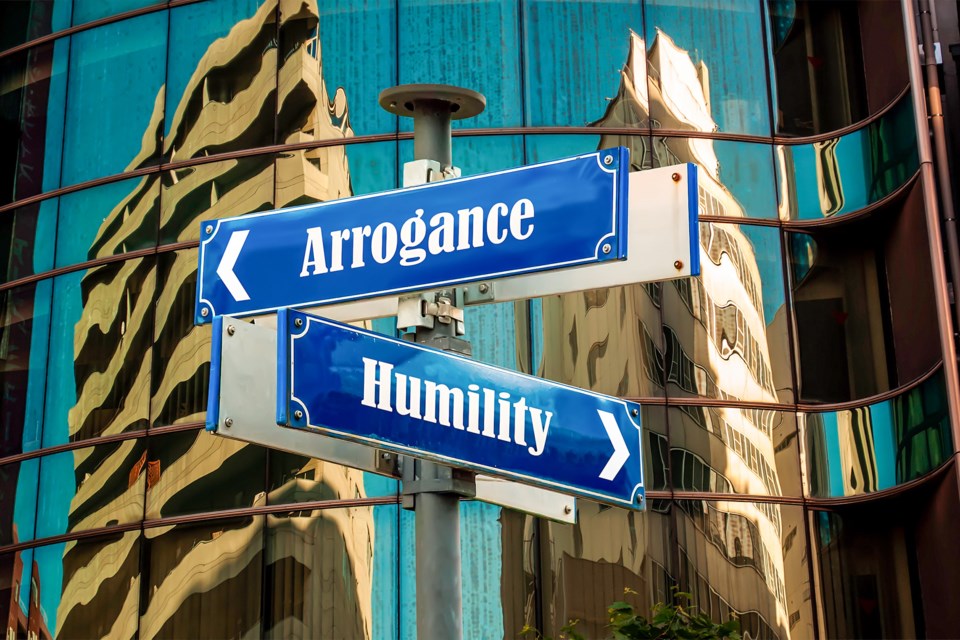Recently in London, England a Passion Play was performed in the centre of the city. Passion Plays are dramas based on the crucifixion of Jesus. The origins are medieval, and while it’s splendid in numerous ways it has also led to accusations of antisemitism, in that even though most of the characters involved were of course Jewish, it’s only the “baddies” — especially Judas — whose Jewishness is emphasized. We see the same in medieval and renaissance art. This, alas, was the allegation made about the last English version, and while it might be harsh it does have some basis in truth.
That’s tragic because it needn’t and certainly shouldn’t be that way. I attended the big one — and I mean big — in Oberammergau in Bavaria, first produced in 1633.
It’s monumental. Half a million people sit for six hours and watch 2,000 actors, all born in the town or resident for 20 years. But there’s also a great deal of baggage. Adolf Hitler saw the play twice and lauded it for its intelligent presentation of “the menace of Jewry.” The maniac’s racist fetish shouldn’t be used as any sort of reliable guide, but in truth the Gospel themes of peace, love and forgiveness were hardly emphasized back then. The play of that era was more easily seen as peasants doing what peasants do, uncluttered and untainted by urban modernity, with the Jews as the modern as well as atavistic enemy.
As such, The Nazis organized subsidized trips, and even tried to impose an explicitly National Socialist script. The locals, to their partial credit, did at least resist that. Nevertheless, Oberammergau caused enormous harm and was, if you like, on the wrong side of history.
So, I, as a Christian with a Jewish father, approached the whole thing with a certain degree of ambivalence, or perhaps even a cultural and emotional terror. Anybody familiar with the new, post-war Germany understands and appreciates its openness, admission, and contrition regarding the Holocaust. The doubter could shrug and ask how the country could do anything other, but the truth is that national denial of complicit crimes in not uncommon, and that the German response goes beyond the formal. But the Passion play?
Yes, even the Passion play. The heart of all this, its very quintessence, is the sublime transformation from the Jew as Christ-killer to the Jew as Christ. Indeed, one of the reasons that the play is so long — and goodness, it is an undertaking — is that the latest script goes to such pains to emphasis the Jewishness of the story. After all, as any decent biblical scholar would tell you, The New Testament is largely an account of an internal struggle within first-century Judaism between supporters and opponents of Jesus.
So in the modern play, the Temple merchants whom Jesus whips are hardly mentioned, Jesus Himself is constantly described as a rabbi, the Sanhedrin divide loudly and almost violently over whether they should accept this new Messiah, the Jewish crowd that condemns Jesus also contains many of His faithful followers, and the menorahs are large, numerous, and unavoidable. It’s easy to be cynical about all this but that’s unfair. More importantly, it’s just inaccurate. This reformed approach, this washed relationship, isn’t some overnight politically correct spasm but the result of years of self-questioning and honesty.
The producers and organizers of the play began to approach Jewish organizations for advice several decades ago, and in the contemporary rendering there is one especially poignant moment when the actor playing Jesus recites the first verses of the Shema in Hebrew. This is the central prayer of Judaism — “Hear, O Israel, the Lord our God, the Lord is One” — and when spoken by a young German actor in a Bavarian town that once boasted a large Nazi party membership it is like spiritual lightning. These are words that were spoken by millions of Jews before they were murdered in the Shoah; they now echo in the German night and are listened to with a tearful respect by everybody on the stage and, it seemed to me, all in the audience. The history and evolution of a relationship between Jew and German crystallised in a single moment. I wept.
Thus, the modern liturgical dance that is the Oberammergau Passion play is a living symbol of hope and reconciliation, not a dry litany of past wrongs, and we can all learn from that. Thank God for real passion, real sensitivity, and the ability to change.

